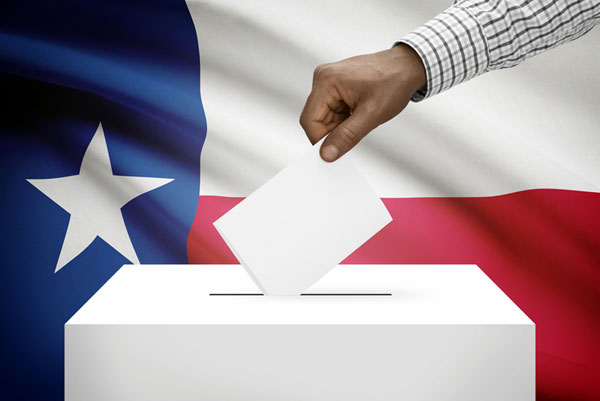- South Texas Students Meet Accordion Music Icons Los Tigres Del Norte In Edinburg Thanks To Khs America/Hohner Alianza Académica Initiative
- Fragile Planet Offers a Nighttime Wildlife Experience
- Falcons Soccer Off & Running
- Cameron County Receives Funds to Improve Two Parks
- Falcons Complete First Half of 32-6A
- School District to Help out Victims of California Wildfires
- Sand Castle Days Continued Despite Unexpected Weather
- Ready for District
- Discussion of Garbage Dumpster Rates, Agreements Between State & City on Highway Regulations, and More
- 31st Annual Shrimp Cook-Off is Right Around the Corner
Agreement Means More Texans Can Vote in November
- Updated: August 19, 2016

More Texans will be able to vote in November under an agreement that allows a wider range of identification documents at the polls. Photo: niyazz/iStockphoto
by Mark Richardson
AUSTIN, Texas – Voting rights advocates encouraged the more than 500,000 Texans who could not have voted under the Texas Voter ID law because they lacked a photo ID to cast a ballot in the November general election.
Following a federal court ruling striking down most of the law, state officials and the plaintiffs in the case agreed to a set of rules making it easier for voters to identify themselves at the polls. Mary Moreno, communications director with the Texas Organizing Project, said her group is gearing up to get the message out to minority voters to get them to the polls on Election Day.
“We’re going to launch our ‘Get Out the Vote,’ which is what we really focus on, more than registration,” Moreno said. “We knock on doors and we connect the issues to the ballot box. You might not know who the politicians are that are running, but people always care about the issues that affect their lives.”
Under the agreement, a voter who doesn’t have a photo ID like a driver’s license or passport can now use a birth certificate, a paycheck stub, or a utility bill to establish their identity.
When the voter ID law was passed in 2011, backers said it was designed to prevent voter fraud. But opponents like Matt Angle, executive director at the Lone Star Project, believed it was passed to keep minority voters away from the ballot box, whether they had an ID or not.
“A lot of Texans who might have had the type of photo ID that was necessary were discouraged from voting by the Republican state leaders making voting sound like a risky proposition, sounding like it was something difficult to do,” Angle said. “That discouragement will no longer be there.”
Following the Texas ruling, courts struck down all or some of similar voter ID laws in Arkansas, North Carolina, and North Dakota. Legal challenges to voter ID laws are also pending in several other states.
